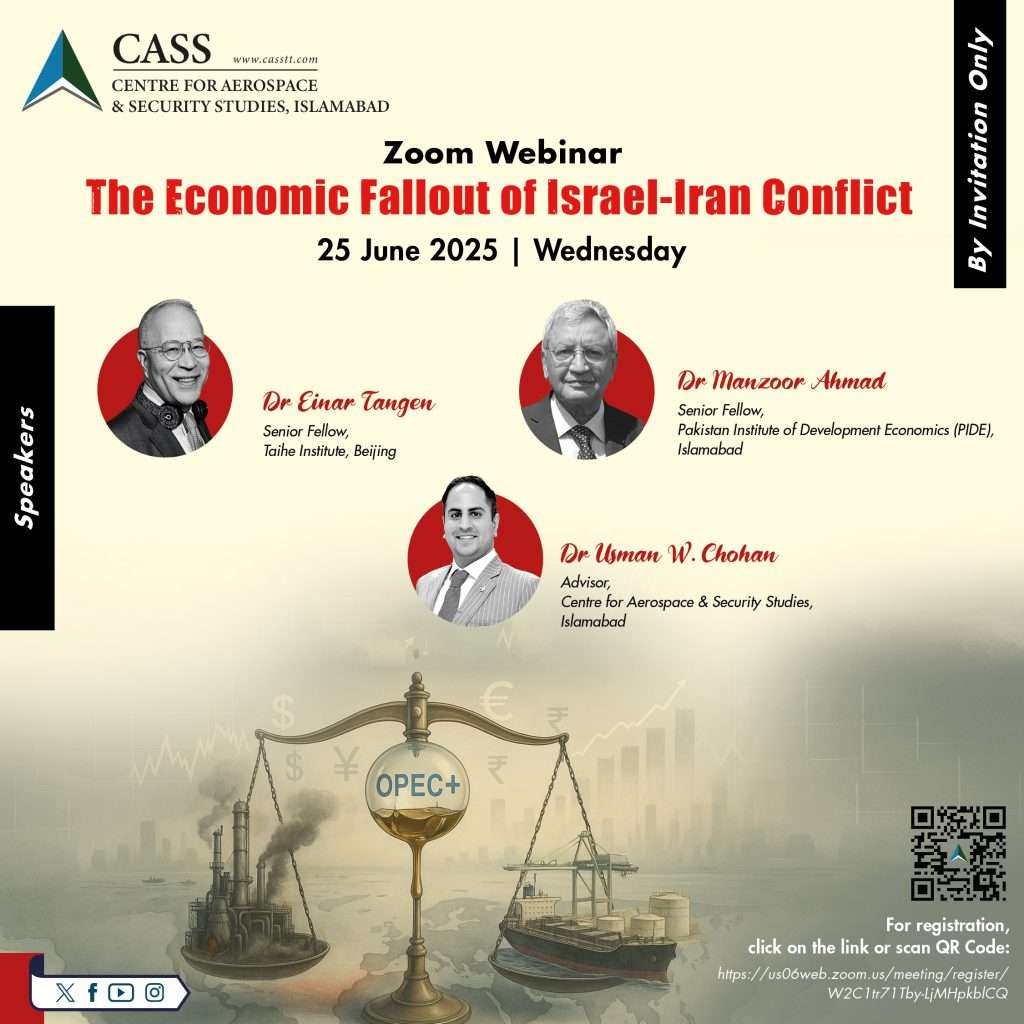The recent military escalation between Israel and Iran amid the Israeli aggression has reignited fears of major disruptions in global energy markets. With key oil and gas infrastructure in Iran and Israel coming under attack and risk of disruption in the Strait of Hormuz – a critical chokepoint for 20% of the world’s oil supply – investors and policymakers are increasingly concerned about the economic ripple effects of regional instability. A significant drop in oil and gas supply, combined with limited spare capacity among OPEC+ members, could push oil prices to unsustainable highs and strain already fragile economies.
This webinar will aim to provide timely, multi-perspective analysis of how the Iran-Israel conflict could reshape global energy dynamics, increase market volatility, and impact inflation and trade flows. It will explore the readiness of OPEC+ to respond, vulnerabilities of energy-importing nations, and the long-term risks to global energy security.
The webinar will focus on the following key questions:
- What are the potential global implications of targeted attacks on Iranian and Israeli oil and gas infrastructure?
- What are the risks of disruption in the Strait of Hormuz, and what could be the strategic and economic consequences globally?
- Given that only Saudi Arabia and the United Arab Emirates (UAE) have meaningful spare production capacity, can OPEC+ adequately respond to a major supply shock?
- How vulnerable are emerging markets – especially oil-importing nations in Asia and Africa – to energy price volatility stemming from this conflict?
- How could sustained conflict in the Gulf affect global economic growth and inflation?
Press Release





